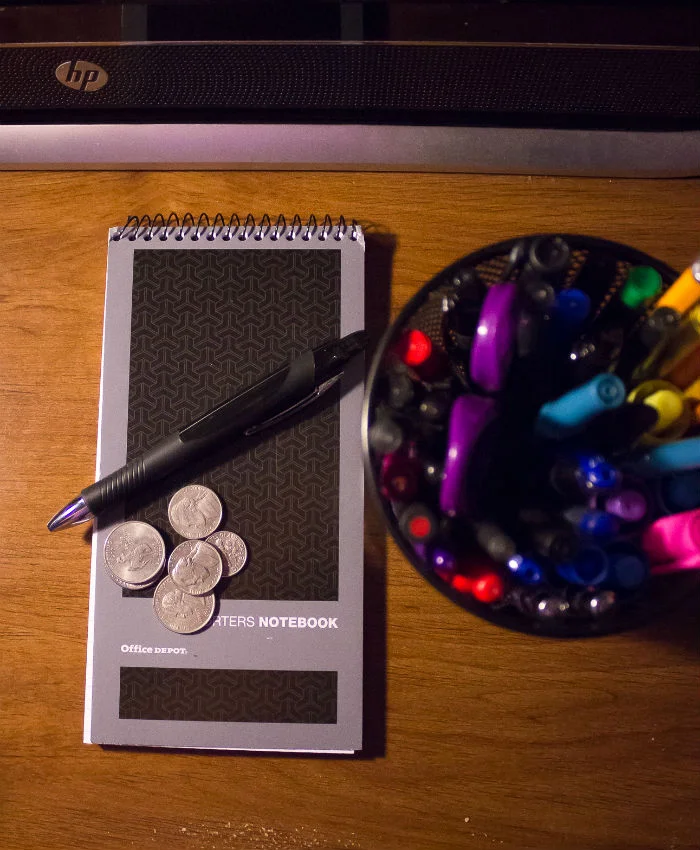The Cost of Unpaid Labor
It cost a lot to not get paid. If you ask anyone in journalism, especially freelancers, they will tell you the same.
I first learned this lesson as a college student at Columbia College Chicago. While earning my bachelors in multimedia journalism and my minor in arts management, I joined the school paper where I covered the college. I used my clips from my college newspaper writing days to land an internship at broadcast TV station, where I earned $10 per hour for up to 30 hours a week. I use my experience from that internship to land my second internship at a business, where I earn $13 an hour for up to 40 hours a week.
But before I landed those two coveted and invaluable internships, I turn down to other publications that had offered me internships, too—one at a weekly paper and another at magazine. The former of the two strong particularly for me, because I particularly loved the publications investigative reporting. When I arrived in Chicago in 2011, the weekly paper in question was the place for me to learn about the cities inner workings from an insider‘s perspective. The latter of the two was especially painful for my family, who read this magazine religiously.
I had to turn down the weekly paper and magazine internships because they were unpaid. Having to turn them down was particularly stressful for me, because I wanted to make sure that I wasn’t making a mistake with my career. On the one hand I loved both of these publications. But on the other hand, I knew that as a girl from a single-parent household in Detroit who did not come from a particularly wealthy family I would not be able to afford to work for free. It was the first time in my life that I had to be faced with such a question. Coming from a family that had worked in the medical, hospitality and automotive industries in Detroit, I never knew that one could ask you to work for free under the guise of mentorship and education. Up until that point even taking out garbage or scraping toilets paid at least $7.40 an hour.
Of course now I know that it all worked out. I’ve gone on to write for multiple national and Chicago-based publications. But I started thinking about all of this again when a New York Times writer asked people on Twitter whether or not they had ever worked for free as part of an unpaid internship.
journalists!!! did you — or someone you know — have to forgo an unpaid internship because you (or they) couldn't afford it? DM me!!!! pls rt!!!
— Internet Person™⭐️ (@TimHerrera) April 16, 2019
Even during my college days I had staunch opinions about unpaid labor. I look back fondly on an editorial I wrote about why unpaid internships weren’t worth the trouble, an editorial which drew a letter to the editor explaining the underlying value of unpaid labor. (It’s never too early to exploit the young.)
And I was surprised to discover, now that I’m a freelancer, that some people were still advocating that writers should write for free. Haven’t we learned anything?
For starters, as I pointed out in a previous post, students who take on unpaid internships are likely to earn less than their peers who to go unpaid internships and are less likely to walk away from the internship with a job offer than their paid classmates.
On top of having to pay for their rent, food, transportation, and other living expenses, students who take on unpaid internships, especially summer internships, will likely be charged tuition by their college in order to except the internship as college credit toward their degree. So in addition to not getting paid but expecting to possess the skills that are useful to a publication, publications that refuse to pay their interns are burdening them with no income to pay for their current expenses as well as a hefty tuition bill from the college.
Despite seeing how unpaid internships disadvantage marginalized students, media companies continue to “offer” them anyway. Now that I’m a full-time freelancer, I see a similar pattern occurring amongst up-and-coming freelance writers who, in the pursuit of a coveted byline, will except lower rates or right for free. Some prominent writers and editors have even encouraged new writers to write for free while acknowledging just how challenging it is to do so.
As I’ve said before, I don’t blame freelancers for accepting low rates. That responsibility falls upon publications. Media companies need to do a better job of running their businesses. They need to pay writers on staff and freelance writers reasonable wages. If nothing else, turning down unpaid internships prepared me for the difficult conversations that I’d have to have as a full-time freelancer. It was the first time that I understood that my work was worth something even if I wasn’t that experienced or connected with in the industry.
And now that I am responsible for paying my loans and keeping myself afloat day today, I still have to remember what my value is. For freelancers overall, the consequences of undervaluing your labor are even greater. It means taking on debt to finance stories, paying bills late, living without health insurance and worrying about retirement.
While journalists reflect on the outcomes of accepting or rejecting unpaid internships, I hope the industry considers how refusing to pay freelancers on time or at all does a disservice to contributes, and in turn, their readers.
Did you take an unpaid internship? Why or why not? Are you tired of hearing about unpaid internships? Tell me in the comments or email me at contact@thefreelancebeat.com.





